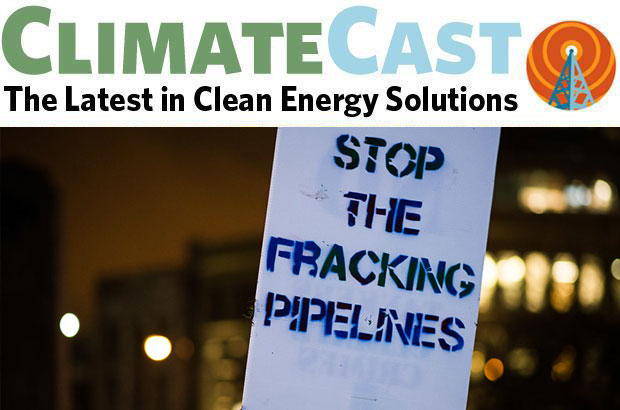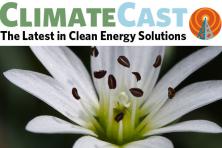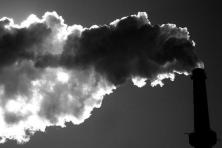If you didn’t like the Keystone XL Pipeline, you won’t like this either
This week federal officials approved a highly controversial gas pipeline extension that would cut through the Pacific Northwest from Canada. The GTN pipeline is operated by Calgary-based TC Energy—the company behind the now-abandoned Keystone XL oil pipeline—and will increase the company’s ability to transport fossil methane gas to the US. Thursday’s announcement from the Federal Energy Regulation Commission (FERC) came amidst a flurry of condemnation from Tribes, Oregon and Washington elected officials, and many public advocacy organizations. Oregon Senator Ron Wyden warned that “there is no way that our states can meet their emissions goals if this project moves forward;” Washington Governor Jay Inslee said that it makes no sense to commit ourselves “to a source of energy whose cost will go up in the coming decades, instead of clean energy sources whose costs are coming down dramatically.” Attorneys General from all three Pacific coast states are on record opposing the project.
Audrey Leonard, staff attorney for the environmental nonprofit Columbia Riverkeeper, called the pipeline approval a “rubber stamp of unnecessary fracked gas in the Northwest” and accused FERC of failing to listen to the voluminous testimony opposing the proposal. The organization plans to appeal the decision. Critics of the pipeline proposal have pointed out not only that expanding gas use runs contrary to the states’ established pollution-reduction goals, but arguably serves no existing or projected demand for the fuel. Available supplies of gas already exceed the demand. Multiple local jurisdictions and the State of Washington have moved to ban gas heating connections in new construction, though some of those regulations are currently in limbo pending the outcome of legal challenges.
Deepening climate impacts on food
A new study finds that, in order to maintain current global food production levels, farming would have to move up 600 kilometers toward the poles in the next century. A cursory look at the map of the globe shows how this shift would favor the global north, though increasing extreme weather events promise to remain a major challenge for a food-secure future. The State of Food Security and Nurtitoin in the World (SOFI) report from the United Nations Food and Agriculture Organization (FAO) shows that the number of people experiencing hunger has risen to 735 million, up from 613 million in 2019; a disturbing trend. The warming planet is expanding farmable land north to Canada, Alaska and Russia, in many cases threatening local wildlife populations.
There is also hope and some good news. In the small island nation of Domenica, a place battered by heat waves, rising sea levels and record breaking hurricanes, the resilience of people is in full display. People there have learned to rely on a tried and true dietary work horse, the humble cassava/yuca. This nutrient-dense tuber, which is indigenous to the region, has been a local answer to food security, along with sustainable local fisheries.
Green Hydrogen gets a major boost, including in the Northwest
The Biden administration last week announced a massive $7 billion investment in hydrogen fuel development, to be administered via seven regional hubs, one supporting projects in the Pacific Northwest. The initiative boosting clean hydrogen fuel promises to help reduce as much as 25 million metric tons of pollution annually, a major step towards meeting the administration’s stated climate goals. Depending on how it is produced and used, hydrogen can be a zero emission fuel and can be utilized as an alternative to fossil fuels in hard-to-decarbonize sectors. But currently, the vast majority of the nation’s hydrogen production is itself powered by fossil fuels, and many experts and leaders are concerned that these investments could continue that polluting legacy without sufficient environmental and health protections. In energy jargon, “green” electrolytic hydrogen is typically produced using renewable energy sources, while “blue” hydrogen relies on fossil fuels. The Biden administration estimates that two thirds of new hydrogen capacity supported by this initiative will be green hydrogen; observers have criticized the program’s lack of transparency on the issue of climate pollution, and called for tighter guarantees to ensure that the hydrogen hubs will fulfill their emissions-cutting potential without also subsidizing or creating additional pollution.
The Northwest hydrogen hub will receive up to $1 billion to support projects in Washington, Oregon, and Montana. Utilities and companies planning to participate in the hub include Puget Sound Energy, Portland General Electric, and the Douglas County PUD, but also major energy users including Amazon and Atlas Agro, and the trucking company PACCAR, among others. The list indicates the wide range of potential applications for hydrogen as a fuel source; the hydrogen hubs’ potential to help the Pacific Northwest meet the region’s climate goals in an equitable way will depend a lot on the details of how the fuel is used as well as produced.
What we’re listening to
Not what is water, but who is water? Listen to legal scholar and water protector Kelsey Leonard in this TedX presentation making the case for why and how we can give legal rights to water… and in the process, how we can truly change the world. Honor the treaties, she urges, and if corporations are seen as people under the law, why not water? Incredible wisdom—and well worth 15 minutes to watch. Thanks to All We Can Save for sharing this last week on Indigenous Peoples Day.





